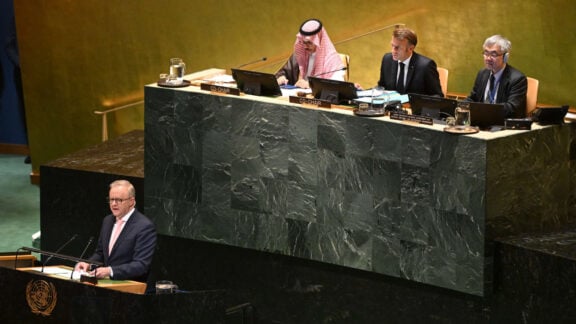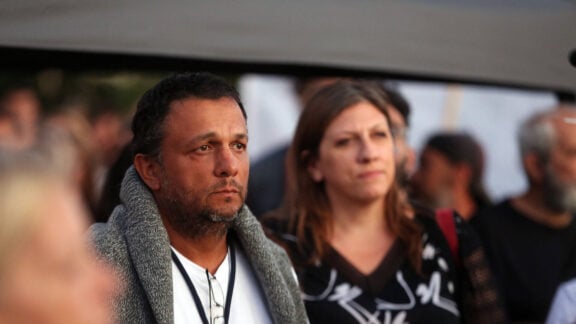Brussels has put the blame on people-smuggling gangs, but for many NGOs and rights groups, the latest migrant boat sinking, off Greece, is the fault of a “Fortress Europe” policy.
At least 78 people drowned when a fishing boat overloaded with migrants capsized and sank in the Ionian Sea on Wednesday, with fears the toll could climb further.
EU chiefs Ursula von der Leyen and Charles Michel each said they were “deeply saddened” by the tragedy. Michel said the goal to “put an end to the unscrupulous business of smugglers” would be discussed at an EU summit in two weeks.
EU home affairs commissioner Ylva Johansson called it Europe’s “moral duty to dismantle the criminal networks” she said were responsible, while adding that investment was needed for “legal pathways” for migrants.
The fatal capsizing occurred days after European Union ministers reached agreement on a long overdue reform of the bloc’s migrant and asylum rules, whose measures include ways to more easily send refused asylum-seekers to “safe” third countries.
Charities including the International Rescue Committee said the repeated fatalities highlighted the lack of legal pathways refugees faced in seeking protection in Europe.
Yves Pascouau, an expert on migration issues, said the drownings off Greece and in the Mediterranean were “effects of the measures and actions” put in place by the European Union since 2015-2016, when it experienced a huge influx of asylum-seekers, many of them Syrians fleeing war at home.
The policies aim “to build a space protected from the rest of the world,” he said, with EU countries looking to offshore border controls, deport undocumented migrants and boosting the powers and resources of the bloc’s border patrol agency Frontex.
Talking about “opening legal immigration pathways is fine, but today the countries aren’t discussing that topic together,” he said.
The European Commission three years ago proposed a reform of asylum policies that would require the bloc’s member states to share the burden of hosting asylum seekers and bolstering external borders.
It has also put in place action plans for the three main migration routes — two through the west and the centre of the Mediterranean, and the third through the Balkans — which rely on deals with migrant departure and transit countries.
Those deals and rules “will continue to cause pushbacks and strengthen Fortress Europe,” the charity Oxfam said in a tweet.
“The European Commission and EU countries keep on striking up deals with countries with dubious human rights records,” one of its migration experts, Stephanie Pope, said.
Frontex actions queried
She criticised Brussels using its trade, aid and visa clout to pressure those countries to conclude deals to prevent onward movement and take back unsuccessful asylum-seekers.
“Experience has shown that these deals don’t work,” she said.
The boat sinking off Greece “is not the first time, and it will not be the last time” such a tragedy occurs, she said.
A leftwing Dutch EU lawmaker, Tineke Strik, called on the European Union to establish a sufficiently funded search-and-rescue service for the Mediterranean.
The role of Frontex in responding to the Greek boat capsizing has also been called into question.
One of its surveillance planes had spotted the overloaded boat before its sinking but, according to Greek authorities, did not intervene because those on board had “refused any help”.
But an international expert on maritime incidents, Nikos Spanos, told Greek state television ERT: “You don’t ask people on board a drifting boat if they need help…. immediate assistance was necessary.”
Frontex’s chief, Hans Leijtens, on Thursday flew to Greece, to inspect the area of the tragedy.
Source: AFP









